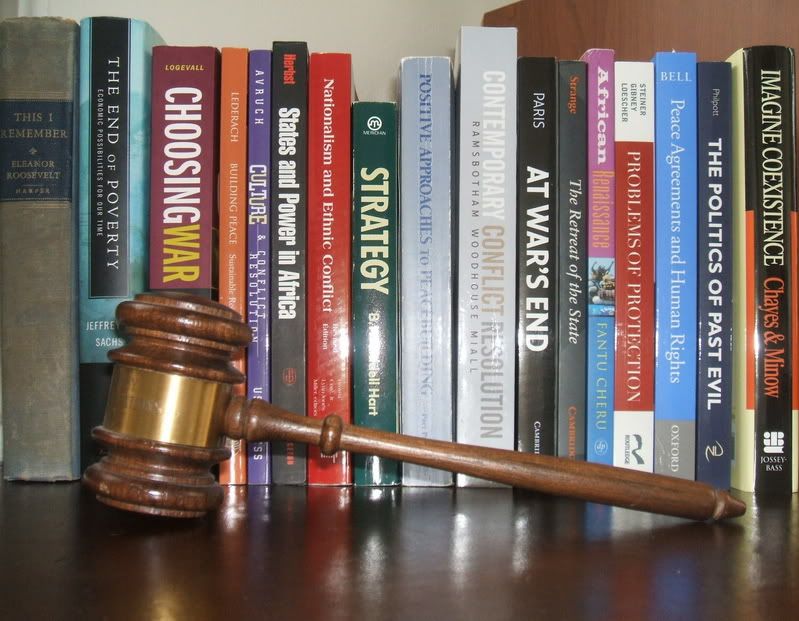Sunday news: out of character edition
There's been much to report on lately, and I'll freely confess to being largely absent. This, in part, has been due to not really feeling the need to add to the din lately, and also due to my being in the thick of things. I'll have a few reflections on those things later. Meanwhile, a few snippets of interest.
- I rarely find myself in agreement with Our Lord and Savior the Kristof, but in this case, I agree that you must go see the film Budrus, about the nonviolent struggle against the boundary fence in a small Palestinian village. I have faith that a nationwide nonviolent movement is possible in Palestine (and don't necessarily think it means lining up all the women). And, I had the pleasure of seeing this film at the Capitol a few weeks ago, followed by a panel featuring Ayad Morrar and Reps. Keith Ellison and Brian Baird. See the film when it's in your town. You will be moved.
- A Kansas City barber (nice town, btw) sums up Obama's image: "That man has a hell of a workload, and Bush left a hell of a mess. I like what he's doing. But I can't feel it."
- Maybe it's summer fluff, but I still suspect that Sonia Sotomayor will be my favorite justice.
- In spite of all the myriad issues that people have on their minds, I'm increasingly convinced the DC mayor's race is going to come down to education. Here's the WaPo's take on Gray's plan. I generally support the age 4-24 approach to education that Gray backs, but share concerns over how to pay for it.
- And while we're at it, what's the role of literature in the fight for justice? One opinion on To Kill a Mockingbird.
- Monday, 4pm, room 500: Committee on Public Safety and the Judiciary hearing on ICE's Secure Communities Program. The Council has already unanimously blocked MPD's planned participation through emergency legislation. Come here advocates speak about why that rejection should become permanent. DC would be the first jurisdiction to reject participating in the program, which requires mandatory immigration checks. More details are here.
- Wednesday, 2pm, room 123: Committee on Aging and Community Affairs roundtable on DC's recent LGBT health report, which notably failed to include information on transgender folks in the District. My fellow members of the DC Trans Coalition raised a stink over this last week, and a hearing was scheduled 48 hours later. How's that's for effective advocacy? Details are here.




